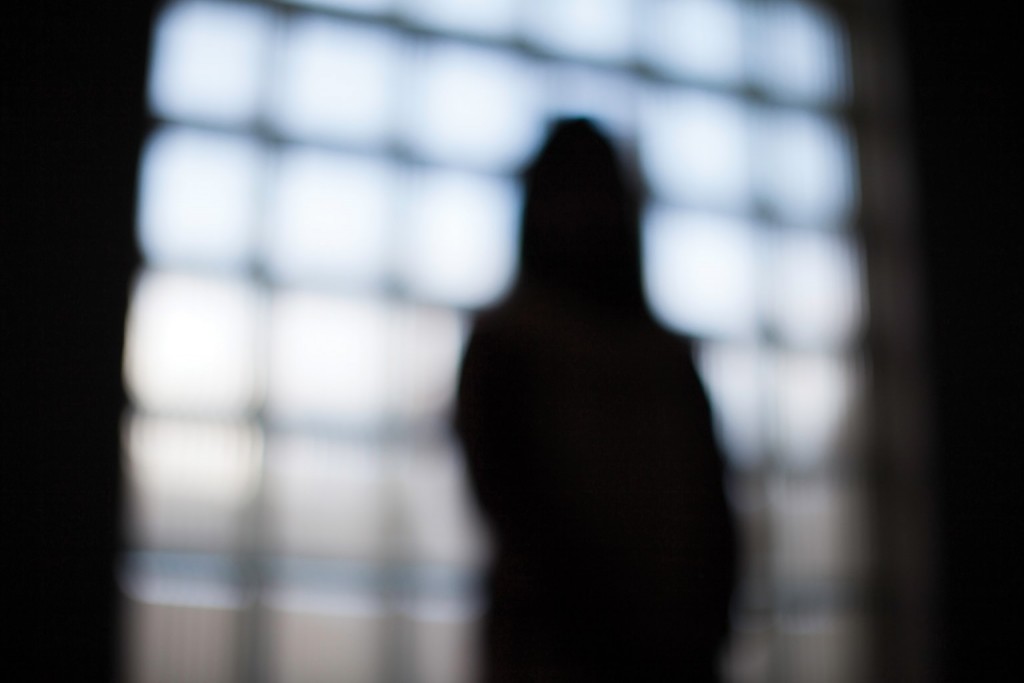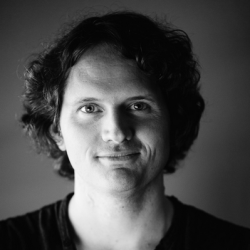 Josi Hwang was the only member of her family to be born in Peru. She was a “miracle baby” who came after a series of devastating miscarriages. Her parents often said that she was “Peruvian” because she was a Peruvian citizen, played in Peruvian dirt, breathed Peruvian air. She spoke Spanish among friends and never knew life in a different country.
Josi Hwang was the only member of her family to be born in Peru. She was a “miracle baby” who came after a series of devastating miscarriages. Her parents often said that she was “Peruvian” because she was a Peruvian citizen, played in Peruvian dirt, breathed Peruvian air. She spoke Spanish among friends and never knew life in a different country.
All of that led to a small but pivotal conversation when Josi was in second grade. Explaining something to her parents, little Josi repeated the words her parents often used: “I’m not Korean, I’m Peruvian!” It left them speechless. They told her, “No, you’re Korean.” She was born to Korean parents, reared in a Korean household, taught Korean values. She spoke Korean with her parents and looked different from every other person in her country.
Lack of clarity had always been a part of Josi’s life, but now it was exacerbated. Her parents’ correction was one more reminder of what had plagued her whole life: she didn’t belong. Remarks from classmates that she was “Chinese” cut deeper. Stares on the city streets were uncomfortable. When she vacationed in Korea to visit family, she was welcomed lovingly and thoroughly, but when a joke or idiom went over her head, even her family would explain, “She didn’t grow up here.”
The dissonance grew. She felt Peruvian on the inside, but was told she was not because of her outside. On the subway in Korea, she realized that she looked like everyone around her. No one gawked. No one called her Chinese. “I am like them,” she thought. And also, “I am not like them.”
Josi came to the United States to earn a bachelor’s degree in psychology. There she began to deal with the isolation of being a nomad struggling to live where she didn’t belong, looking for a trajectory to a place where she did. While reading through the book of Jeremiah, Josi began to feel the prompting and assurance of God. There, in the story of the exiled and landless Israelites, Josi found her own story.
Build houses and live in them; plant gardens and eat what they produce. Take wives and have sons and daughters; take wives for your sons, and give your daughters in marriage, that they may bear sons and daughters; multiply there, and do not decrease. But seek the welfare of the city where I have sent you into exile, and pray to the lord on its behalf, for in its welfare you will find your welfare. (Jeremiah 29:5–7 ESV)
The path her parents had walked—through faithfully answering a call to mission work in Peru, through the pain of miscarriages, through their lives as strangers in a strange place—had defined her own path: she was a child of exile. By embracing this story, she found God’s call on her own life: to seek the welfare of the city where she had been born in exile, born against all odds or hopes. She was Peruvian and Korean, and she was both for a reason. Neither she nor her place of birth were accidental, but miraculously guided and ordained by the God who called her father to Peru and now called Josi back to Peru. Josi knew where she belonged, even if no one else did.
“When I finish school in the States,” she thought, “I will go back to Peru. I am only a sojourner here.” She refused to be rooted in the United States, because it was only a matter of time before she was back in the correct hemisphere. She would work, eat, sleep, and study as a sojourner, and then be gone.
But the words of Jeremiah haunted her. When she began her PhD in clinical psychology at Fuller, she landed in the Travis Research Institute on a project working with children of undocumented immigrants. As she sat in the homes of interviewees—many of whom were fearful and suspicious of researchers’ motives—Josi felt a connection with the children. They lived with the knowledge that their parents could be snatched away by the government and they could be left orphans or deported from their own country. Many had already experienced it. It reminded Josi of her own fears during power changes in Peru—would her parents be told to pack up and leave? Arrested? Would her country of citizenship turn on her parents? The trauma in full bloom among her research subjects could have been her own.
“Seek the welfare of the city where I have sent you.”
What had been simply a job to make ends meet became Josi’s mission. It was time for her to commit to the city in which she was exiled—Los Angeles—knowing full well that she would return to Peru at the end of her degree. She lamented the suffering of the children her team worked with. She rejoiced when parents said, “I have not seen my children smile like this in a long time.” The team that Josi was a part of was doing more than just research; they were making a tangible, immediate difference in these marginalized yet resilient lives. Things as simple as knowing a child’s name, of playing a game with them, gave the children a sense of belonging and security for the first time in a long time. Josi found herself feeling the same thing in the process.
When Josi’s degree is done, her visa will expire and Josi will return home to Peru. Peru is her home, her origin, her calling, and the place of her vocation. It is part of why she exists, and she will remain loyal to the God who sent her there in the first place. What will she do when she gets back, though? That, she doesn’t know. Of one thing she is certain: “I will build houses and live in them. I will plant gardens and eat their harvest. I will marry and give my sons and daughters in marriage, and I will seek the welfare of the city where God has sent me in exile, and pray to the Lord on its behalf.”

 Josi Hwang es la única de su familia nacida en Perú. Ella ha sido considerada “una bebé milagro”, porque nació después de una devastadora serie de abortos involuntarios. Durante su crecimiento muy a menudo sus padres le mencionaban que ella era “Peruana” porque era ciudadana peruana, jugaba en el suelo y tierra peruana y respiraba el aire peruano. Ella hablaba español con sus amigos y nunca conoció la vida de otro país diferente al suyo, Perú.
Josi Hwang es la única de su familia nacida en Perú. Ella ha sido considerada “una bebé milagro”, porque nació después de una devastadora serie de abortos involuntarios. Durante su crecimiento muy a menudo sus padres le mencionaban que ella era “Peruana” porque era ciudadana peruana, jugaba en el suelo y tierra peruana y respiraba el aire peruano. Ella hablaba español con sus amigos y nunca conoció la vida de otro país diferente al suyo, Perú.
Todas estas vivencias guiaron a Josi a una pequeña e importante información cuando estaba en segundo grado. Mientras le explicaba algo a sus padres, la pequeña Josi repitió las palabras que muy frecuentemente escuchaba de ellos mismos: “¡Yo no soy coreana, yo soy peruana!.” Al escuchar esta declaración, sus padres se quedaron mudos y sorprendidos. Ellos le dijeron, “No, tu eres coreana”. Josi nació de padres coreanos, criada en una casa con costumbres y valores coreanos. Ella hablaba coreano con sus padres y su contextura física era diferente a las demás personas en su país.
En la vida de Josi las cosas no han sido claras y ahora se están poniéndose mas difíciles. Las correcciones de sus padres eran un recordatorio del sentimiento que la había atormentado toda la vida: Ella no pertenecía. Los comentarios de sus compañeros quienes se referían a ella como “La China” le llegaba más profundo. Las miradas fijas de las personas en la calle la hacían sentir muy incomoda. Cuando ella fue de vacaciones a Corea para visitar su familia, fue recibida con mucho amor, pero cuando hacían algún chiste o expresión idiomática que ella no entendía, su familia explicaba, “Ella no creció aquí”.
La discrepancia crecía. Ella se sentía Peruana en su interior, pero le decían que no lo era por su físico exterior. Mientras estaba en el metro en Corea, ella notaba que físicamente todos eran iguales a ella, nadie se sorprendía al mirarla. Nadie la llamo China. Pensó: “Yo soy como ellos, pero yo no soy como ellos”
Josi llego a los Estados Unidos para estudiar una licenciatura en sicología. Empezó a sentir esa soledad y aislamiento de ser una extranjera tratando de vivir en un lugar al que no pertenecía, en busca de una trayectoria en el lugar que había escogido. Durante su lectura del libro de Jeremías, Josi empezó a sentir la seguridad y garantía que solo Dios puede dar. Leyendo la historia de los Israelitas exiliados y sin tierra, Josi encontró su propia historia.
“Construyan casas y habítenlas; planten huertos y coman de su fruto. Cásense, y tengan hijos e hijas; y casen a sus hijos e hijas, para que a su vez ellos les den nietos. Multiplíquense allá, y no disminuyan. Además, busquen el bienestar de la ciudad adonde los he deportado, y pidan al Señor por ella, porque el bienestar de ustedes depende del bienestar de la ciudad” (Jeremías 29:5-7, NVI).
Sus padres, unos fieles misioneros que aceptaron el llamado de servir a Dios en Perú, a pesar de ser extranjeros en un lugar extraño y del gran dolor producido por los abortos involuntarios que sufrieron. Estas experiencias han definido a Josi: Ella era una niña del exilio. Al abrazar y hacer suya esta historia, ella encontró el llamado de Dios para su propia vida: Procurar el bienestar de la ciudad donde nació en el exilio, nacida a pesar de todas las adversidades y esperanzas. Josi era peruana y coreana, era las dos cosas por una razón. Ni ella ni su lugar de nacimiento fueron accidente. Ella era la realización milagrosa ordenada y guiada por Dios quien llamo a sus padres a ministrar en Perú y ahora está llamando a Josi a que regrese a Perú donde sabía que pertenecía aunque otros no lo reconocieran.
“Cuando termine mis estudios en los Estados Unidos voy a regresar a Perú”, pensó “yo solo soy una forastera en este país”. Ella se negó a establecer sus raíces en Estados Unidos, porque solo era cuestión de tiempo antes que estuviera de vuelta en el hemisferio correcto. Ella iba a trabajar, estudiar, comer y dormir como una extranjera, luego regresaría.
Las palabras de Jeremías la perseguían. Cuando ella empezó su (PhD) doctorado en psicología clínica en Fuller, llegó al Instituto de Investigación Travis en un proyecto trabajando con los hijos de los inmigrantes. Cuando se sentaba en las casas de los inmigrantes para las entrevistas, muchos de ellos estaban atemorizados y sospechoso de los motivos de los investigadores. Josi sintió una conexión con los niños.
Estos niños reconocían que en cualquier momento sus padres podían ser deportados por el gobierno y quedarían huérfanos o expulsados de su propio país. Muchos de ellos ya lo habían experimentado. Esto le recordaba a Josi sus propios miedos durante los cambios de gobierno en Perú. ¿Le hubieran pedido a sus padres que empacaran sus maletas y se fueran? ¿Los arrestarían? ¿El país de su nacimiento deportaría a sus padres?. El trauma de los sujetos de su investigación pudo haber sido el suyo propio.
“Buscar el bienestar de la ciudad donde te he enviado.”
Lo que aparentemente fue un simple trabajo, al final se ha convertido en la misión de Josi. Ha llegado el tiempo para que ella se comprometa a la ciudad donde está exiliada, Los Ángeles sabiendo muy bien que ella regresaría a Perú al final de sus estudios. Ella lamentaba el sufrimiento de los niños con el equipo que trabajaba. Josi se regocijaba de satisfacción cuando los padres le decían: “Por mucho tiempo no veíamos a nuestros hijos reír”. El equipo al cual Josi pertenecía estaba haciendo más que investigaciones; estaban realizando una diferencia tangible en las vidas de estos seres marginados. Actos aparentemente pequeños, como aprender el nombre de los niños o jugar un juego con ellos les daba a los niños un sentido de pertenencia y seguridad por primera vez en mucho tiempo. Josi se encontró a si misma sintiéndose igual que ellos en el proceso.
Cuando Josi termine sus estudios doctorales, su visa de estár en Los Estados Unidos va a expirar y regresará a su casa en Perú. Perú es su casa, sus orígenes, su llamado y el lugar de su vocación. Esto es parte de su existencia y ella permanecerá leal a Dios, quien en primer lugar, fue que la trajo aquí. ¿Qué hará ella cuando regrese? Eso, ella no lo sabe. De una cosa Josi está segura: “Yo edificaré casas y viviré en ellas, plantaré huertos y comeré de ellos. Me casaré y daré a mis hijos e hijas en casamiento. Yo voy a buscar el bienestar de la ciudad donde Dios me ha enviado de exilio y oraré a Dios por ellos.”

 황조시는 그녀의 가족 중 유일하게 페루에서 태어났습니다. 그녀는 거듭된 충격적인 유산 끝에 태어난 “기적의 아기”였습니다. 그녀의 부모는 자주 그녀는 페루사람이라고 부추기기도 했습니다. 그도 그럴 것이 그녀는 페루 시민이었고 페루의 공기를 마시며 페루의 흙먼지 속에서 놀았기 때문입니다. 친구들과 스페인어로 말하는 그녀는 다른 나라에서의 삶은 알 길이 없었습니다.
황조시는 그녀의 가족 중 유일하게 페루에서 태어났습니다. 그녀는 거듭된 충격적인 유산 끝에 태어난 “기적의 아기”였습니다. 그녀의 부모는 자주 그녀는 페루사람이라고 부추기기도 했습니다. 그도 그럴 것이 그녀는 페루 시민이었고 페루의 공기를 마시며 페루의 흙먼지 속에서 놀았기 때문입니다. 친구들과 스페인어로 말하는 그녀는 다른 나라에서의 삶은 알 길이 없었습니다.
이 모든 것은 조시가 2학년이었을 때 있었던 사소하지만 중요한 한 편의 대화로 이어집니다. 부모에게 무언가를 설명하면서 어린 조시는 부모가 자주 하던 말을 되풀이했습니다. “나는 한국인이 아니에요, 나는 페루사람이라고요!” 그녀의 부모는 말문이 막혔습니다. “그렇지 않아, 너는 한국인이다.” 부모가 바로잡았습니다. 그녀는 한국인 부모에게서 태어났고 한국인 가정에서 자랐으며 한국적 가치를 배웠습니다. 부모와는 한국어로 이야기했고 페루 사람들의 외모와는 닮은 구석이 없었습니다.
혼란은 늘 조시 삶의 일부분이었지만 이젠 한층 심해졌습니다. 부모의 단언이 지금까지 내내 그녀를 괴롭혀 왔던 것을 한 번 더 생각나게 하고 말았습니다. 그녀는 어디에도 속하지 않았다는 사실 말입니다. 반 친구들이 그녀를 “차이니즈”라고 했던 것이 깊은 상처가 된 적도 있었습니다. 길거리에서 사람들이 쳐다보는 것도 불편했습니다. 반면 가족을 방문하며 한국에서 휴가를 보냈을 때 그녀는 따뜻하고 온전하게 환영받았습니다. 물론 그녀의 이해를 넘는 농담이나 관용표현들이 나오면 그녀의 부모가 나서서 “얘는 여기서 자란 아이가 아니랍니다.”라고 설명하곤 했습니다.
갈등은 점점 커졌습니다. 그녀는 내면적으로 페루사람과 다름없었지만, 외모 때문에 사람들은 그녀를 페루사람으로 여기지 않았던 것입니다. 한국의 지하철 안에서 그녀가 깨달은 것은 주변의 모든 사람과 자신이 닮았다는 점이었습니다. 아무도 그녀를 멍하니 바라보지 않았습니다. 아무도 그녀를 차이니즈라고 부르지 않았습니다. “나는 저들과 같구나!” 라는 생각이 들었고, 역시 “나는 저들과 같지 않아.” 하는 생각도 스쳤습니다.
조시는 대학에서 심리학을 전공하기 위해 미국으로 왔습니다. 그곳에서 그녀는 자신이 속하지 않은 곳에서 살기 위해, 그리고 자신이 속한 어떤 곳을 찾기 위해 분투했던 방랑자로의 고립감을 다루기 시작했습니다. 예레미아서를 읽으면서 조시는 하나님의 간섭 하심과 보호하심을 느끼기 시작했습니다. 성경 안에, 추방되어 나라를 잃은 이스라엘 백성들의 이야기 속에서 조시는 자신의 이야기를 발견했습니다.
“너희는 집을 짓고 거기에 살며 텃밭을 만들고 그 열매를 먹으라 아내를 맞이하여 자녀를 낳으며 너희 아들이 아내를 맞이하며 너희 딸이 남편을 맞아 그들로 자녀를 낳게 하여 너희가 거기에서 번성하고 줄어들지 아니하게 하라 너희는 내가 사로잡혀 가게 한 그 성읍의 평안을 구하고 그를 위하여 여호와께 기도하라 이는 그 성읍이 평안함으로 너희도 평안할 것임이라.” (예레미야 29:5-7, 개역개정)
페루 선교사역에 대한 소명에 신실하게 응답하고, 연이은 유산의 고통을 지나, 낯선 땅에서 이방인으로 살아온 그녀의 부모가 걸어왔던 그 길은 그녀 자신의 길을 정의하고 있었습니다. 그녀는 이방 아이였던 것입니다. 이 말씀을 가슴으로 받으며 그녀는 자신의 삶에 대한 하나님의 부르심을 깨달았습니다. 그것은 그녀가 모든 역경과 소망 가운데 태어났던 그 이방 도시의 평안을 구하는 것이었습니다. 그녀가 페루인이면서 한국인인 것에는 이유가 있었던 것입니다. 그녀도 그녀의 출생지도 우연이 아니었습니다. 그녀의 아버지를 페루로 부르셨고 이제 조시를 다시 페루로 부르시는 하나님께서 놀랍게 인도하시고 정하신 일이었습니다. 아무도 알아채지 못했을지라도 조시는 자신이 속한 곳을 알고 있었습니다.
“미국에서 공부를 마치면, 페루로 돌아가야지.” 그녀는 생각했습니다. “이곳은 내가 잠시 머무는 곳일 뿐이야.” 그녀는 미국에 뿌리내리는 것을 원치 않았습니다. 그녀가 자신에게 맞는 반구로 돌아가는 것은 그저 시간문제일 뿐이었습니다. 잠시 머물며 이곳에서 일하고 먹고 자고 공부하겠지만 결국 떠날 것입니다.
그런데 예레미야의 말씀이 뇌리에서 떠나지 않았습니다. 풀러에서 임상심리학 박사과정을 시작했을 때, 그녀는 트레비스 연구소 내에 불법 체류자들의 자녀들을 대상으로 하는 프로젝트에 참여하게 되었습니다. 그녀가 인터뷰하러 그들의 집을 방문했을 때, 대부분 아이들이 두려워했고 연구자들의 동기를 의심했습니다. 조시는 그 아이들이 낯설지 않았습니다. 그들은 정부에서 그들의 부모들을 잡아가면 고아로 남거나 추방당할 수도 있음을 인지하며 살고 있었습니다. 많은 아이가 이미 경험했던 일이었습니다. 페루의 정권교체 기간에 느꼈던 그녀 자신의 공포감이 떠올랐습니다. 부모님이 당장 짐을 싸서 떠나게 되면 어떡하지? 체포되면? 내 나라가 부모님을 공격하면 어떡하지? 그녀의 연구 대상자들이 겪었을 정신적 충격은 그녀 자신의 몫이었을 수도 있었습니다.
“너희는 내가 가게 한 그 성읍의 평안을 구하라.”
단지 생계를 위해 시작한 일이 조시의 소명이 되었습니다. 학위를 받으면 페루로 돌아갈 것을 잘 알고 있었지만, 지금은 그녀가 보내심을 받은 도시, Los Angeles에 헌신해야 할 때였던 것입니다. 그녀의 팀과 함께했던 그 아이들의 고통에 그녀는 비탄했습니다. “아이들이 이렇게 웃는 걸 본 게 오랜만입니다.” 라는 부모의 말에 그녀는 매우 기뻐했습니다. 조시의 팀은 순수 연구 그 이상을 하고 있었습니다. 그들은 소외되었지만 꿋꿋한 이 아이들의 삶에 눈에 보이는 즉각적인 변화를 만들어 내고 있었던 것입니다. 아이들의 이름을 불러주고 그들과 게임을 하며 놀아주는 단순한 일들이 아이들에게 오랜만에 처음으로 소속감과 안정감을 주었습니다. 그 과정에서 조시 자신도 같은 감정을 느꼈습니다.
학위를 마치면, 그녀의 비자는 만료될 것이고 조시는 고국인 페루로 돌아갈 것입니다. 페루는 그녀에게 고향이고, 뿌리이며, 그녀의 소명이고, 그녀가 일할 곳입니다. 그곳은 그녀가 존재하는 이유의 일부이며, 그녀는 그곳에 처음 자신을 보내신 그 하나님께 순종할 것입니다. 하지만 돌아가면 그녀는 무엇을 하게 될까요? 그건 그녀도 모릅니다. 한 가지 그녀에게 확실한 것은 있습니다. “나는 집을 짓고 거기에 살며 텃밭을 만들고 그 열매를 먹을 것입니다. 나는 결혼을 할 것이며, 내 아들들과 딸들을 혼인시킬 것입니다. 그리고 나는 하나님께서 가게 한 그 이방 성읍의 평안을 구하고 그곳을 위하여 여호와께 기도할 것입니다.”




